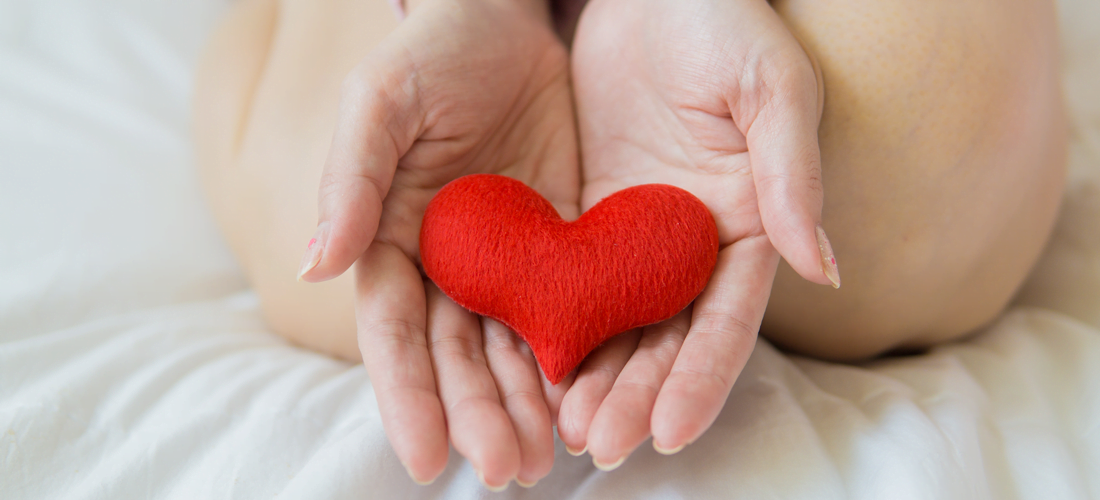When it comes to taking care of ourselves, physical health is often the first thing that comes to mind. We are constantly reminded to eat a balanced diet, exercise regularly, and get enough sleep. But what about emotional self-care? Emotional self-care is just as important as physical health when it comes to living a healthy lifestyle. In this blog post we will explore why emotional self-care is so important and how you can incorporate it into your life in order to be happier and more productive. We will discuss different ways you can practice mindful activities such as meditation, journaling, or even talking with friends in order to help manage stress levels and take better care of yourself emotionally. So if you’re looking for ways on how to prioritize your mental wellbeing then keep reading!
What is Emotional Self-Care?
Emotional self-care is a process which involves learning to identify, understand, and manage one’s own emotions. It involves utilizing strategies such as positive self-talk, mindfulness, and engaging in activities that bring joy, relaxation, and comfort. Emotional self-care can help us respond more effectively to challenging situations and ultimately become better equipped to manage our overall wellbeing.
Emotional self-care is important because it allows us to develop a better understanding of ourselves and our feelings. With this improved awareness comes the ability to recognize when we are feeling overwhelmed or stressed, so that we can take the necessary steps to deal with these emotions in healthy ways. Additionally, emotional self-care helps us cultivate greater resilience and improve relationships with others around us.
Being compassionate towards ourselves during difficult times is also another key aspect of emotional self-care. When we practice acceptance of our own feelings regardless if they’re positive or negative, we give ourselves permission to feel without judgment or criticism. This creates an environment which encourages growth and healing instead of allowing negative emotions to persist unchecked.
Ultimately, emotional self-care is about taking charge of our mental health in order to live healthier and happier lives. By engaging in regular practices that nurture our mind, body and soul on a consistent basis, we can create a healthier relationship with ourselves which will benefit us for many years to come.
Benefits of Emotional Self-Care
Emotional self-care is essential for maintaining mental and emotional well-being. It equips individuals with the tools to navigate life’s challenges, build healthier relationships, and lead a more fulfilling and balanced life. By taking care of our emotional needs, we can cultivate resilience and lead happier, more meaningful lives.
1. Stress Reduction
Regularly engaging in activities that nourish your mental and emotional wellbeing can help to reduce stress levels, allowing you to feel more relaxed and in control of your life. Examples of activities that can help with stress reduction include mindfulness meditation, yoga, journaling, art therapy and spending time outdoors. Additionally, taking regular breaks throughout the day for relaxation or connecting with friends can also be beneficial for reducing stress levels.
2. Improved Mental Health
Improved mental health is a benefit of emotional self-care as it helps to reduce stress, improve mood, and increase resilience in the face of life’s challenges. Additionally, engaging in activities such as meditation or mindfulness can help to promote clarity and focus while also allowing individuals to gain insight into their own thoughts and feelings. Ultimately, taking time for yourself can lead to improved mental health by providing an outlet for releasing built up emotions and helping you cope with difficult situations more effectively.
3. Enhanced Self-Awareness
Through regular practice, individuals can become more aware of their thoughts, feelings, and behaviors in order to better understand themselves and the world around them. With this increased understanding comes greater clarity about life choices and decisions that can lead to improved mental health and overall well-being. Additionally, enhanced self-awareness allows people to recognize when they are feeling overwhelmed or stressed out so that they can take steps to address these issues before they become major problems.
4. Better Relationships
When someone practices self-care, they can become more aware of their own emotions as well as the emotions of those around them, leading to better understanding and empathy. This awareness can help individuals become better at recognizing when a relationship needs attention or extra care. It also provides the opportunity for them to express their feelings in a caring way that conveys understanding, rather than judgment or criticism. Taking the time to nurture relationships with regular self-care activities can lead to stronger connections and healthier emotional bonds between people. These healthy relationships can provide support and encouragement during difficult times, as well as enhance overall wellbeing.
5. Increased Productivity and Focus
Increased Productivity and Focus is a benefit of emotional self-care because it helps to reduce stress, improve mental clarity, and increase energy levels. This allows individuals to be more productive and focused on their work or other tasks they need to accomplish. Additionally, taking time for yourself can help you feel more motivated and inspired which can lead to improved performance in the workplace or at home.
6. Empowerment
Practicing emotional self-care can help individuals to recognize their own potential and strengths, allowing them to feel more confident in their abilities and take ownership of their decisions. This increased sense of empowerment can lead to improved mental health and well-being, as well as better decision making and problem solving skills.
7. Coping with Trauma and Loss
During times of trauma or grief, emotional self-care can be particularly vital. Emotional self-care helps build resilience, increase self-awareness, and foster healthy coping strategies. Emotional self-care can also help individuals process their emotions in a safe and supportive environment, allowing them to gain insight into the underlying causes of their trauma or loss. Additionally, engaging in activities that promote emotional well-being such as mindfulness meditation or journaling can be beneficial for helping individuals work through difficult experiences.
8. Preventing Burnout
One of the major benefits of emotional self-care is Preventing Burnout. When you take time to practice emotional self-care and prioritize your wellbeing, it can help you avoid feeling overwhelmed and mentally drained from the demands placed on you by work, school, relationships, and other areas of life.
Practicing self-care can help reduce stress levels, which in turn can have a positive impact on your overall mental health. Additionally, when you are taking care of yourself emotionally, it allows you to be more present in the moment. This helps to ensure that you are not operating on autopilot and that you can recognize signs of possible burnout before they become too severe.
Through emotional self-care activities such as regular physical exercise, engaging in leisure activities that bring joy and relaxation, and getting enough restful sleep each night, individuals can proactively prevent burnout rather than waiting until it’s too late to do anything about it.
Strategies for Nurturing Emotional Well-Being
Emotional self-care is essential for nurturing emotional well-being. Remember that emotional well-being is an ongoing process, and different strategies work for different individuals. It’s essential to be patient and compassionate with yourself as you explore and implement these techniques to nurture your emotional well-being. Regular practice and self-awareness are key to maintaining emotional balance and resilience.
Practice Self-Compassion
Practicing self-compassion is a powerful form of emotional self-care. It involves treating yourself with kindness and understanding, rather than harshly judging or criticizing yourself. Practicing self-compassion helps us become less critical of ourselves and more accepting of our imperfections. This can have positive effects on our emotional wellbeing by providing us with greater clarity, resilience, and meaning in life.
Engage in Regular Physical Activity
Engaging in regular physical activity is one of the best ways to practice emotional self-care. It can help to clear the mind and reduce stress, while also providing an outlet for any negative emotions that may be present. Physical activity can also reduce symptoms of depression and anxiety, as it releases endorphins, which are chemicals in the brain that are responsible for making us feel good. Additionally, it can improve self-image and body image awareness by allowing people to feel better about their bodies and their overall wellbeing.
Cultivate Mindfulness
Start by setting aside some dedicated time each day for yourself. This could be 5 minutes, 10 minutes, or more depending on what you have available. During this time, decide which mindful practice you will engage in – it could be meditation, journaling, drawing/painting, gardening – anything that helps you stay grounded in the present moment. As you engage in the activity with an open mind and heart, notice any thoughts or feelings that arise without judgment or attachment. Allow yourself to simply observe these emotions without reacting to them. This non-reactive approach helps us to recognize patterns in our thinking and feelings that can impact our well-being at a deeper level.
Build a Supportive Social Network
A supportive social network can provide the necessary support, encouragement, and understanding during difficult times and provide a source of strength when feeling overwhelmed or stressed. Creating a supportive network begins by connecting with people who are willing to listen and offer constructive advice when needed. It is important to create meaningful connections with trusted friends and family members who will be there to lend an ear when needed. Building strong relationships with those we trust provides us with an outlet for expressing our feelings without fear of judgment.
Limit Exposure to Negative Influences
Limit contact with people who bring negativity into your life. This could mean ceasing contact with someone who expresses negative thoughts or has repeated bouts of anger, or it could mean avoiding people who make you feel bad about yourself. It could also involve being aware of how much time you spend on social media, and limiting the amount of time spent engaging with digital content that brings down your mood or leaves you feeling drained.
Set Boundaries
One way to start setting effective boundaries is by understanding your values and priorities. Know what matters most to you and make sure you prioritize those things in your life. This will help you determine which relationships or situations are worth investing in, while also helping you create constructive limits when needed. Take the time to recognize when things become too much or when it’s necessary to say “no” for your own wellbeing. It can be difficult, but allowing yourself a break from activities that sap your energy and mental health is key for effective emotional self-care.
Prioritize Sleep
Prioritizing sleep is key for taking care of both your physical and mental health. Start by creating a routine and sticking to it. Going to bed around the same time every night and waking up at the same time each morning helps your body adjust so that you can fall asleep easily. Additionally, creating a relaxing atmosphere in your bedroom, such as dimming lights, playing soothing music, and diffusing essential oils can create an environment conducive to restful sleep.
Engaging in calming activities before bed like reading or doing light yoga can also help relax your mind and body for a good night’s rest. Finally, limiting caffeine intake late in the day and avoiding screens before bedtime are two important steps you can take to improve the quality of your sleep.
Practice Gratitude
One of the easiest ways to practice gratitude is to take time each day to express thankfulness for all of the good things in your life. This could include writing down a list of positive thoughts or situations that have happened throughout the day, or simply taking a few moments to sit quietly and think about the many blessings we often take for granted.
You can also practice gratitude by expressing gratitude for yourself. Recognizing your own accomplishments, hard work, and successes can be incredibly helpful in nurturing self-esteem and self-worth. Taking some time each day to write down what you’re proud of about yourself can go a long way in improving your emotional health and wellbeing.
Finally, it’s important to reach out and express gratitude in meaningful ways through acts of kindness towards others. Showing appreciation for those around you with kind words or small gifts can help foster strong relationships while boosting your own mood as well.
Engage in Hobbies and Creative Activities
Taking a break from your daily routine can be beneficial for mental health, allowing you to relax and de-stress. Consider taking up a new hobby such as painting, drawing, playing an instrument, or crafting. These activities can help you focus on something positive and give you a sense of purpose or accomplishment. Additionally, creative pursuits can open up new opportunities for socializing with like-minded people in your area.
Seek Professional Support
Having someone reliable to talk to and receive guidance from can be incredibly validating and empowering during difficult times. Professional support provides a safe space for venting frustrations or concerns while gaining new insight into yourself and developing coping strategies for dealing with stressors. There might also be resources available such as group therapy sessions or online counseling services if either of those options appeal more to you than traditional one-on-one therapy sessions in an office setting.
Practice Emotional Regulation
Practicing emotional regulation is a great way to take care of yourself emotionally and maintain your mental well-being. One of the best ways to do this is by learning to become aware of your emotions, understanding where they come from, and expressing them in healthy ways.
First, try to become aware of your emotions. Notice when you’re feeling overwhelmed, anxious, angry, or even joyful. Knowing how you’re feeling and why can be helpful in managing these emotions before they get out of hand.
Next, work on understanding the source of your emotions. Ask yourself questions like “What triggered this emotion?” or “What am I really feeling right now?” This will help you gain insight into why you are feeling the way that you are and how best to address it.
Finally, try to express your emotions in healthy ways such as journaling, talking to a friend or family member about what you’re going through, or even using art or music as an outlet for your emotions. Finding healthy outlets for your feelings can help relieve built up stress and prevent issues from getting worse.
Engage in Laughter and Humor
Engaging in laughter and humor is a great way to practice emotional self-care! It doesn’t need to be complicated; even the simplest jokes or funny anecdotes can make a huge difference in how we feel. Taking a few moments each day to laugh and smile can help us stay focused and manage stress levels.
Humor can also help us break through barriers and connect with others. When you share a joke or an amusing story with someone, it can open up communication and create feelings of closeness. This sense of connection can have incredibly positive effects on our relationships with others, as well as our own emotional well-being.
Spend Time in Nature
Taking some time to get away from the hustle and bustle of everyday life can be immensely beneficial for your mental health. Whether it’s taking a walk through a nearby park, spending an afternoon at the beach, or even just sitting in your own backyard, there are many different ways to enjoy the healing power of nature.
When you take time out to spend in nature, you can enjoy its beauty and energy, which can help reduce stress levels and anxiety. Studies have shown that people who spend more time outdoors tend to have higher levels of happiness and wellbeing. Enjoying natural environments has also been found to improve attention and focus, as well as providing important restorative effects on our physical and mental state.
Engage in Mindful Eating
Engaging in mindful eating can be a powerful way to pay attention to yourself and your needs. To start, choose a quiet place where you can sit undisturbed for several minutes. Then, take a few moments to focus on your breath and notice how it feels to inhale and exhale. You can also do some gentle stretching or yoga poses prior to beginning your meal.
Once you’re ready, take the time to slowly look at your food, taking in the colors, shapes and textures. Become aware of any smells or aromas that may be present. Take small bites and savor each one, paying attention to the taste sensations they provide. Be sure not to rush; enjoy the process of chewing and swallowing. Afterwards, consider how you’re feeling both physically and emotionally; did the meal nourish you?
Practice Emotional Detachment
It’s important to recognize when you are becoming emotionally overwhelmed or attached to a situation or person. Being able to name and identify your emotions will help you to practice emotional detachment. This might mean recognizing when you feel angry, frustrated, upset, jealous, insecure, or anxious.
Once identified, it helps to pause and take some time for yourself away from the situation or person. Taking some time away allows for reflection on why you’re feeling this way and what action can be taken to best manage the emotion without allowing it to take control of the situation.
Final Thoughts
Taking care of your emotional wellbeing is an essential part of living a healthy and fulfilling life. It’s important to remember that self-care isn’t just about pampering yourself, it’s also about being mindful of how you feel and taking proactive steps to improve your overall mental health. From engaging in activities that make you happy or talking with trusted friends for support, there are many ways to practice emotional self-care. By making time for things like this on a regular basis, you can create positive habits that will help you take better care of yourself and lead a more balanced lifestyle.












